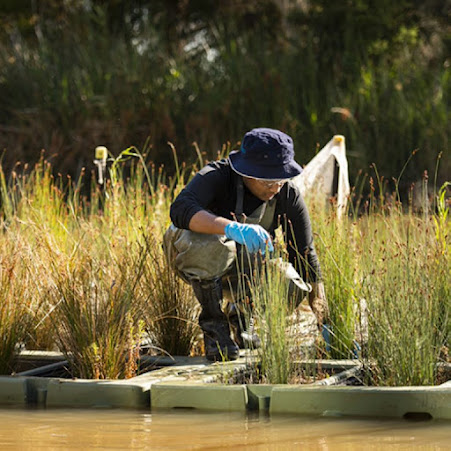 |
| Tropical vegetation near Lake Bosumtwi in Ghana. Photo credit: William Gosling. |
That means it’s unlikely that tropical forests will expand in response to rising greenhouse gas levels, an outcome that some had hoped might lead to increased CO2 storage in tropical ecosystems as carbon-rich woody plants replace grasslands, which are less adept at storing CO2.
The study was published May 5 in Science. The research team was made up of scientists from the Netherlands, United Kingdom and United States, including scientists at The University of Texas at Austin.
The researchers analyzed 500,000 years of tropical vegetation change in West Africa and found that CO2 had less of an influence on tropical forest growth than water, wildfires and animal grazing did.
“When you scale up to the landscape scale, the resources available and processes occurring within that landscape are more important than the CO2 fertilization,” said the study’s lead author, William Gosling of the Institute for Biodiversity and Ecosystem Dynamics at the University of Amsterdam.
















.jpg)